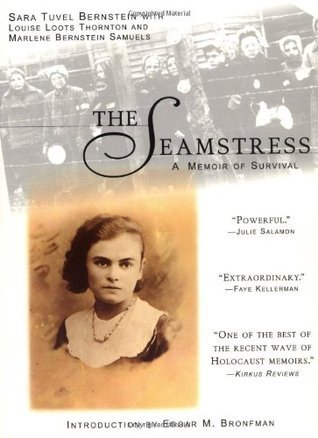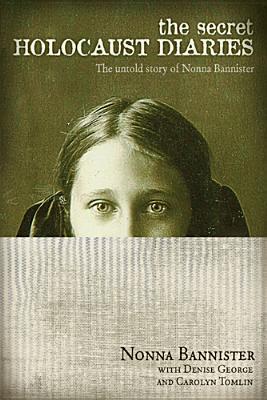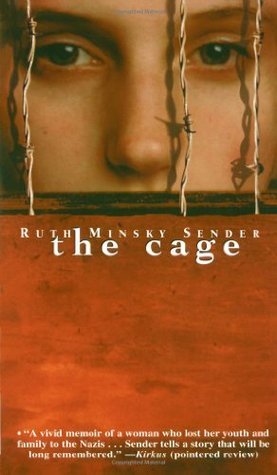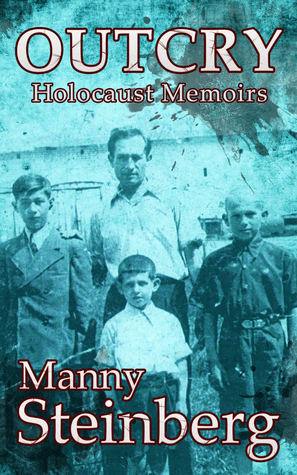
The Seamstress
Book Description
Threads of fate intertwine in "The Seamstress," where one woman's relentless determination to create beauty becomes a life-saving act in a world torn apart by war. Amidst the chaos of conflict, friendships bloom and betrayals fester as secrets unravel in the shadows of a city fighting for its soul. Each stitch tells a story, binding the past to the present, while the looming threat of danger leaves hearts pounding and hope flickering. As love and loyalty are tested, the question remains: how far will one seamstress go to safeguard her world and those she loves?
Quick Book Summary
"The Seamstress" by Sara Tuvel Bernstein is a powerful memoir recounting Bernstein's survival during the Holocaust. Born into a Jewish family in Romania, Sara's skills as a seamstress become her salvation as war engulfs Europe. Facing the horrors of the Auschwitz and Ravensbrück concentration camps, Bernstein endures unimaginable suffering and loss, relying on determination, quick thinking, and her craft to stay alive. Through acts of friendship, small rebellions, and her unwavering willpower, she maintains hope in the face of evil. The memoir not only documents the atrocities committed but also celebrates the enduring human capacity for hope, resilience, and courage, weaving a tale of survival amidst history's darkest chapter.
Summary of Key Ideas
Table of Contents
Survival and Adaptation in Crisis
Sara Tuvel Bernstein begins her story in pre-war Romania, growing up in a vibrant Jewish community. Her early life is marked by family, love, and her apprenticeship as a seamstress—a skill encouraged by her mother. As World War II erupts and the Nazis invade, Bernstein documents how daily life transforms rapidly into one of restriction and fear. The early stages of the Holocaust unfold: loss of civil rights, forced ghettos, and eventual deportation. Through it all, Bernstein’s close relationships with family and friends both anchor and endanger her, as trust becomes a matter of life and death.
The Role of Craft and Skill as Salvation
Once imprisoned in the concentration camps, Bernstein’s tailoring skill proves crucial to her survival. Commanders and guards favor those who offer useful services, allowing her slightly better conditions, protection from the most brutal labor, and occasional access to food or information. Bernstein’s expertise enables her to barter for small mercies not only for herself but often for others, highlighting the theme of how one’s craft can become a lifeline. Yet, these small boons are precarious, dependent on the whims and cruelty of her captors, and come at the cost of constant vigilance and moral compromise.
Betrayal, Loyalty, and the Complexity of Relationships
Amid the chaos of the camps, relationships among prisoners are complex. While kindness and solidarity emerge—secretly sharing bread or information—there are also betrayals born of desperation. Bernstein’s friendships offer comfort, but trust is often shattered, as survival sometimes demands unthinkable choices. Love and loyalty are both crucibles and lifelines in the face of terror. The memoir explores the emotional toll of these shifting alliances and the psychological strategies needed to endure trauma.
The Endurance of Hope and Humanity
Despite relentless brutality, Bernstein and many others cling to hope, sustained by memories, faith, and dreams of freedom. Small acts of rebellion—a misplaced stitch, a whispered prayer—become acts of resistance that reaffirm their humanity. The author’s unyielding determination not to let the Nazis erase her dignity or identity is echoed in her refusal to abandon her craft. Even as she confronts death, starvation, and betrayal, Bernstein’s hope helps her persevere, illuminating the capacity of the spirit to endure the worst of circumstances.
Memory, Witness, and the Burden of History
After liberation, Bernstein faces the daunting task of rebuilding a life amid the scars left by loss and memory. The memoir concludes with her commitment to bear witness to the Holocaust’s horrors, emphasizing the importance of testimony in the pursuit of justice and healing. By sharing her story, Bernstein honors the dead and affirms the vital need to remember, making "The Seamstress" a testament not only to survival but to the resilience and responsibility of memory.
Download This Summary
Get a free PDF of this summary instantly — no email required.





